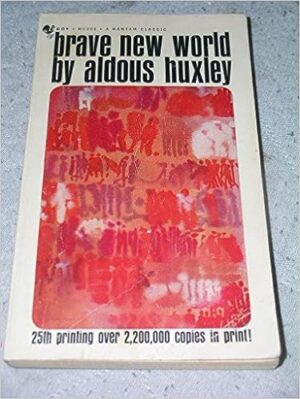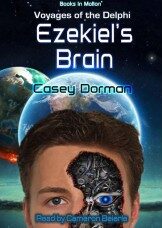Within literature, there is a long tradition of using science fiction and alternative histories to comment on current society. Several of the most successful of these efforts have left lasting impressions on society and become benchmarks against which we measure how far we’ve gone in the directions, usually negative ones, envisioned by the books.
Aldous Huxley’s Brave New World presented us with an image of a paternalistic society that cultivated mindlessness, where art, religion and science had disappeared, where pain was avoided and its avoidance assured by the use of pacifying drugs. Those who were destined for menial work were consigned to it before birth and others, who lived off their labor, spent their time in pleasure-seeking pursuits. It was a society where those in charge formed a bureaucracy that knew best, that took care of everyone’s needs for their entire lives, unless they dared to question it, which could prove fatal. Huxley wrote it as a warning about the dangers of a life made easy, a life without decisions, a life unexamined. Brave New World was published in 1932, when the pace of technological advancement seemed rapid and when the average person vacillated between feeling as if the drudgery and hardship of life was about to be left behind, and harboring a growing anxiety that the forces promising a better and easier life were big, impersonal, and unable to be understood by the common man. Huxley meant the novel as an antidote to utopian visions.
Nineteen thirty-two was 91 years ago, but the anxieties and even the promise of Brave New World have never left us. Its dangers, the dark underside of technological progress without ethics, the pursuit of pleasure and trivial achievements without standards, and the division of the world’s population into the profligate haves and the destitute have-nots, are with us today. We’ve gone from a car in every garage, and a refrigerator in every kitchen to a microwave and a computer in every house, self-driving electric cars charging in every garage, instant communication and pocket-size entertainment, a population addicted to painkillers, and finally, just appearing on the horizon, artificial intelligence that will find our information for us, write our books and reports, program our computers, make our decisions and, soon, perhaps, take our jobs. Whole segments of society can’t tell science from gossip, have attention spans of less than a few minutes, won’t read a book or even a computer post that takes more than five minutes, and fancy themselves as scholars and thinkers because they’ve watched YouTube videos. Politicians and parents call for bans on books, while universities, the traditional bastions of free speech, label any communication that deviates from its self-defined narrow path of acceptability as harmful and damaging to their students and therefore forbidden.
Books tend to suffer in dystopian novels. In the extreme case, such as Ray Bradbury’s Fahrenheit 451, they were forbidden and burned, while the society watched “reality” TV shows on television screens as large as the side of a room. More recently, in The Coldness of Objects, a novel about an alternative 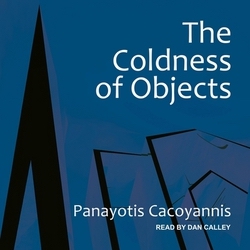 present, Panayotis Cacoyannis painted a dystopian picture of a society in which populism has run amok, the majority bullies the minority—the immigrants, those with sexually different preferences or identities, intellectuals, artists, poets, anyone but the sanctified ordinary citizen—and once again, books are banned, museums celebrate mediocrity and a government, eager to remain in power enforces strict control of people, ideas and the expression of ideas. Exquisitely and sensitively written, The Coldness of Objects is a literary example of a genre that creates a reality in which our current trends are exaggerated to illustrate their ominousness. Increasingly, it doesn’t appear to be an exaggeration.
present, Panayotis Cacoyannis painted a dystopian picture of a society in which populism has run amok, the majority bullies the minority—the immigrants, those with sexually different preferences or identities, intellectuals, artists, poets, anyone but the sanctified ordinary citizen—and once again, books are banned, museums celebrate mediocrity and a government, eager to remain in power enforces strict control of people, ideas and the expression of ideas. Exquisitely and sensitively written, The Coldness of Objects is a literary example of a genre that creates a reality in which our current trends are exaggerated to illustrate their ominousness. Increasingly, it doesn’t appear to be an exaggeration.
Kim Stanley Robinson’s The Ministry for the Future seemed like an exaggeration of present dangers until this past summer in which the planet boiled under record-setting temperatures. Robinson cares about the planet, and even his famous Red, Blue, and Green novels about terraforming mars, point to the more desirable goal of saving earth. In Aurora, one of his best novels, after traveling millions of miles in their generation ship, his characters decide that returning home is the best solution. But home is always a 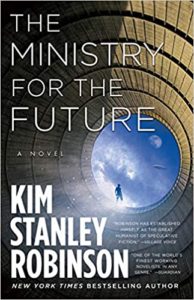 place of suffering and destruction, which is why other planets are sought, and in The Ministry for the Future, the people have no generation starship or “planet B.” Earth is getting lethally hot in the worst hotspots, such as parts of India. Thousands are dying of exposure to heat (think Khartoum, Delhi, Seville, Phoenix). The novel is as close to a documentary on climate change and ways of combating it as it can get while remaining fiction. The approaches to alleviating global warming are startling and innovative, close to sci-fi, but based on science and scientific proposals. Barack Obama put the book on his summer reading list the year it came out.
place of suffering and destruction, which is why other planets are sought, and in The Ministry for the Future, the people have no generation starship or “planet B.” Earth is getting lethally hot in the worst hotspots, such as parts of India. Thousands are dying of exposure to heat (think Khartoum, Delhi, Seville, Phoenix). The novel is as close to a documentary on climate change and ways of combating it as it can get while remaining fiction. The approaches to alleviating global warming are startling and innovative, close to sci-fi, but based on science and scientific proposals. Barack Obama put the book on his summer reading list the year it came out.
The novels of Philip K. Dick, although all of them over fifty years old, are a combination of dystopian worldviews, outer-space visitation, alternative histories, conspiracy-theory paranoia and prescience about artificial intelligence, told with wit and style. The most direct metaphor for current social events in Dick’s era were Valis and Radio Free Albemuth, in which a populist, dictatorial president named Ferris F. Fremont, an obvious caricature of Richard Nixon, violates all the constraints of the constitution and the precepts of decency to solidify his power. The only possible salvation from such corrupt power comes from an extraterrestrial entity called Valis. Ferris F. Fremont, as depicted by Dick, was such a perfect caricature of not just Nixon, but of Donald Trump, that not only did most Dick fans see the connection, but I, myself, used a caricature of the character, reversing his name to Fremont F. Ferris, in my story of an ego-maniacal president using every device possible to avoid having to leave office in what I thought at the time, was an alternative history, and which I presciently named 2020.
Dick’s alternative history novels, including the televised The Man in the High Castle, have become cult classics and even mainstream hits. But it’s his artificial intelligence and virtual reality stories that are much more on people’s minds today than when he wrote about them. Do Androids Dream of Electric Sheep? which became the film classic, Blade Runner, revolved around the moral dilemma created 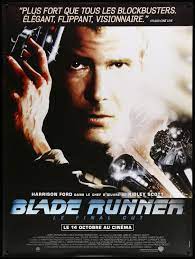 by intelligences that are self-conscious and have an urge to survive. Is “retiring” them morally defensible? The dilemma is intensified by having the protagonist of the novel, Rick Deckard (played by Harrison Ford in the film), carry a gun and kill them, an act which provokes Deckard’s own questions about the morality of what he’s doing. What I most enjoyed about the book and the film was that it was not always clear who was an AI and who was a human—even to the AI itself. Even Deckard became unsure that he was human. The issue of the morality of “killing” a conscious AI is one raised in the recent landmark paper “Consciousness in Artificial Intelligence: Insights from the Science of Consciousness” published by Butlin et al., and which I have called “The most Important AI Paper You’ll Read this Year.” Dick’s novel anticipated a genuine issue that could have wide ramifications in the future. My own Voyages of the Delphi novels, Ezekiel’s Brain and Prime Directive, deal with the same issue.
by intelligences that are self-conscious and have an urge to survive. Is “retiring” them morally defensible? The dilemma is intensified by having the protagonist of the novel, Rick Deckard (played by Harrison Ford in the film), carry a gun and kill them, an act which provokes Deckard’s own questions about the morality of what he’s doing. What I most enjoyed about the book and the film was that it was not always clear who was an AI and who was a human—even to the AI itself. Even Deckard became unsure that he was human. The issue of the morality of “killing” a conscious AI is one raised in the recent landmark paper “Consciousness in Artificial Intelligence: Insights from the Science of Consciousness” published by Butlin et al., and which I have called “The most Important AI Paper You’ll Read this Year.” Dick’s novel anticipated a genuine issue that could have wide ramifications in the future. My own Voyages of the Delphi novels, Ezekiel’s Brain and Prime Directive, deal with the same issue.
The blurring of the dividing line between humans and machines that think and look like them is captured beautifully in Ian McEwan’s Machines Like Me, another alternate history, which re-writes the 1980s as a period in which the UK lost the war with Argentina and Alan Turing didn’t commit suicide 30 years earlier but lived to create not just computers, but artificial intelligences that were conscious and physically indistinguishable from humans. McEwan presents a story in which a couple share an AI android they purchased and both they and the android go through the agonizing process of getting to know each other, forming relationships, and finally completely failing to understand how each other think.
I’ve left out many prophetic and profound science fiction or alternate history novels (George Orwell’s 1984 and Philip Roth’s The Plot Against America, as alternative histories and Kurt Vonnegut’s Slaughterhouse Five as science fiction, to name three outstanding examples) that have metaphorically analyzed society with such an impact that their words, characters, or stories have become part of our modern psyche. I’m sure that readers of such novels see the world differently because of them. Capturing a reader’s imagination and engaging their emotions are effective ways to leave an enduring mark and alter perceptions of the society around us. Those aren’t bad goals for a fiction writer.
2020 is an alternate history… or is it? Read the author’s prescient prediction about a president who refuses to step down. Click Here
Can an AI really be conscious? Would that make it more or less dangerous? Read Casey Dorman’s exciting sci-fi thriller, Ezekiel’s Brain.
Available in paperback and Kindle editions
Rather listen than read? Download the audio version of Ezekiel’s Brain from Audible.
Subscribe to Casey Dorman’s Newsletter. Click HERE
